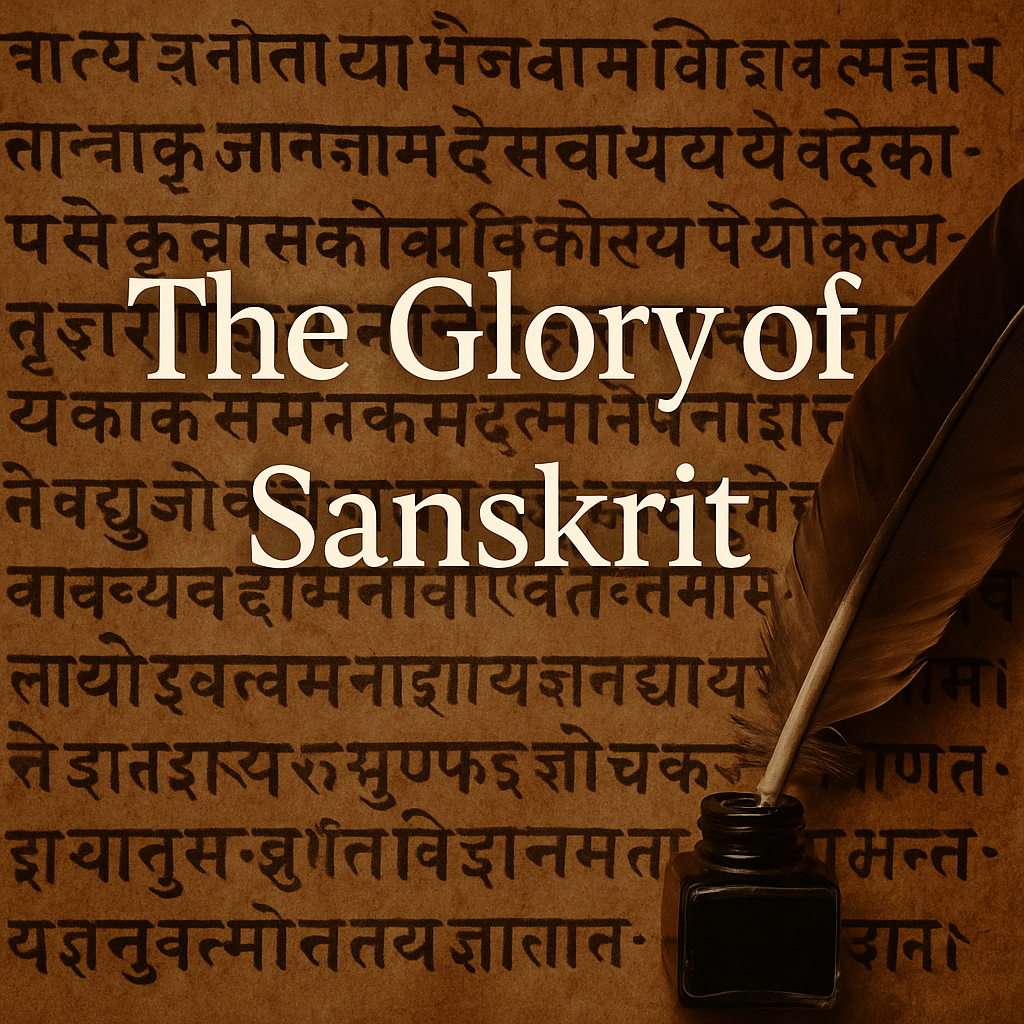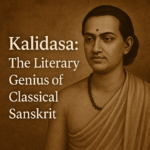In a world that is rapidly modernizing, the treasures of the ancient past often fade into obscurity. Yet, there are some gems that continue to shine with unwavering brilliance — one such jewel is Sanskrit, the classical language of India. More than just a medium of communication, Sanskrit is a profound reservoir of wisdom, philosophy, art, and science. Its glory lies not just in its antiquity, but in its spiritual depth, linguistic perfection, and cultural universality.
A Language Older Than Time
Sanskrit, derived from the word “Samskritam”, means “refined” or “well-formed.” It is believed to have originated more than 3,000 years ago, though oral traditions trace it even further back. Regarded as the mother of all Indo-European languages, Sanskrit has influenced a wide range of tongues — from Hindi and Bengali to Latin, Greek, and even English.
It is the language in which the Vedas, Upanishads, Bhagavad Gita, Mahabharata, Ramayana, and countless other scriptures and literary works were composed — texts that form the foundation of Hindu philosophy, Indian ethics, and global spirituality.
The Science of Sound and Structure
One of the most fascinating aspects of Sanskrit is its mathematical precision. The grammar of Sanskrit was codified over 2,500 years ago by the legendary scholar Panini, whose work Ashtadhyayi is considered one of the earliest and most sophisticated grammars in the world. His linguistic system is so comprehensive that even modern computer scientists and AI researchers are studying it to build more efficient algorithms.
Sanskrit is not just a language; it is a science of sound. Its phonetics are so refined that each syllable resonates with a unique vibration, believed to influence both the speaker and the listener’s consciousness. This is why Sanskrit mantras are used in meditation and rituals — their power lies in both meaning and vibration.
A Treasure Trove of Knowledge
From mathematics and astronomy to medicine (Ayurveda), metaphysics, and art, Sanskrit literature is a vast ocean of knowledge. Ancient texts in Sanskrit cover subjects like:
-
Surgery and Anatomy (Sushruta Samhita)
-
Mental health and psychology (Charaka Samhita)
-
Logic and debate (Nyaya Sutras)
-
Astronomy and timekeeping (Surya Siddhanta)
-
Mathematics and algebra (works of Aryabhata and Bhaskaracharya)
This shows that Sanskrit was not only a spiritual language but also a language of scientific inquiry and intellectual brilliance.
Why Sanskrit Still Matters Today
Despite being ancient, Sanskrit is far from obsolete. In recent years, there has been a growing global interest in learning Sanskrit — from universities in Germany and the USA to Indian gurukuls and online platforms. Scholars, yogis, and seekers are rediscovering its spiritual and cognitive power.
Moreover, Sanskrit is considered an ideal language for computers and AI, due to its unambiguous syntax and logical structure. NASA and other institutions have explored its potential in developing natural language processing technologies.
The Soul of Indian Culture
Sanskrit is not just a linguistic symbol — it is the soul of Indian heritage. It carries the essence of the nation’s spiritual, philosophical, and moral traditions. Every mantra chanted, every shloka recited, and every ancient verse sung is a reminder of the civilization that revered wisdom, harmony, and inner awakening.
Reviving Sanskrit is not about turning back the clock — it is about reconnecting with our roots, honoring our legacy, and nurturing a language that still holds the power to enlighten the world.
Conclusion
The glory of Sanskrit lies not merely in its past, but in its eternal relevance. It is a language that speaks not only to the intellect but to the soul. As we move forward into a future shaped by innovation and global exchange, Sanskrit offers a bridge between ancient wisdom and modern consciousness. Embracing it is not just about preserving a language — it is about rediscovering ourselves.


